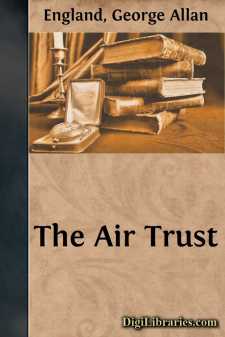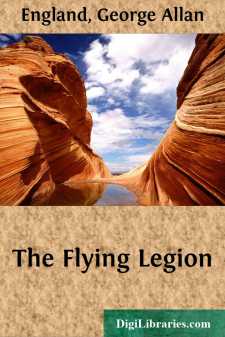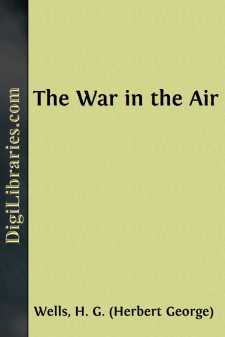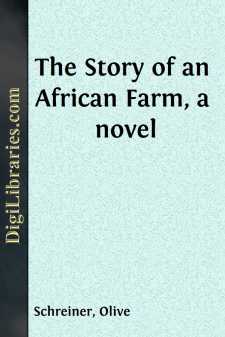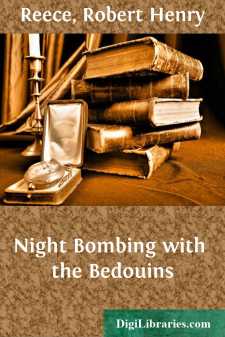Categories
- Antiques & Collectibles 13
- Architecture 36
- Art 48
- Bibles 22
- Biography & Autobiography 813
- Body, Mind & Spirit 142
- Business & Economics 28
- Children's Books 15
- Children's Fiction 12
- Computers 4
- Cooking 94
- Crafts & Hobbies 4
- Drama 346
- Education 46
- Family & Relationships 57
- Fiction 11828
- Games 19
- Gardening 17
- Health & Fitness 34
- History 1377
- House & Home 1
- Humor 147
- Juvenile Fiction 1873
- Juvenile Nonfiction 202
- Language Arts & Disciplines 88
- Law 16
- Literary Collections 686
- Literary Criticism 179
- Mathematics 13
- Medical 41
- Music 40
- Nature 179
- Non-Classifiable 1768
- Performing Arts 7
- Periodicals 1453
- Philosophy 64
- Photography 2
- Poetry 896
- Political Science 203
- Psychology 42
- Reference 154
- Religion 513
- Science 126
- Self-Help 84
- Social Science 81
- Sports & Recreation 34
- Study Aids 3
- Technology & Engineering 59
- Transportation 23
- Travel 463
- True Crime 29
The Air Trust
Description:
Excerpt
CHAPTER I.
THE BIRTH OF AN IDEA.
Sunk far back in the huge leather cushions of his morris chair, old Isaac Flint was thinking, thinking hard. Between narrowed lids, his hard, gray eyes were blinking at the morning sunlight that poured into his private office, high up in the great building he had reared on Wall Street. From his thin lips now and then issued a coil of smoke from the costly cigar he was consuming. His bony legs were crossed, and one foot twitched impatiently. Now and again he tugged at his white mustache. A frown creased his hard brow; and, as he pondered, something of the glitter of a snake seemed reflected in his pupils.
"Not enough," he muttered, harshly. "It's not enough—there must be more, more, more! Some way must be found. Must be, and shall be!"
The sunlight of early spring, glad and warm over Manhattan, brought no message of cheer to the Billionaire. It bore no news of peace and joy to him. Its very brightness, as it flooded the metropolis and mellowed his luxurious inner office, seemed to offend the master of the world. And presently he arose, walked to the window and made as though to lower the shade. But for a moment he delayed this action. Standing there at the window, he peered out. Far below him, the restless, swarming life of the huge city crept and grovelled. Insects that were men and women crowded the clefts that were streets. Long lines of cars, toy-like, crept along the "L" structures. As far as the eye could reach, tufted plumes of smoke and steam wafted away on the April breeze. The East River glistened in the sunlight, its bosom vexed by myriad craft, by ocean liners, by tugs and barges, by grim warships, by sailing-vessels, whose canvas gleamed, by snow-white fruitboats from the tropics, by hulls from every port. Over the bridges, long slow lines of traffic crawled. And, far beyond to the dim horizon, stretched out the hives of men, till the blue depths of distance swallowed all in haze.
And as Flint gazed on this marvel, all created and maintained by human toil, by sweat and skill and tireless patience of the workers, a hard smile curved his lips.
"All mine, more or less," said he to himself, puffing deep on his cigar. "All yielding tribute to me, even as the mines and mills and factories I cannot see yield tribute! Even as the oil-wells, the pipe-lines, the railroads and the subways yield—even as the whole world yields it. All this labor, all this busy strife, I have a hand in. The millions eat and drink and buy and sell; and I take toll of it—yet it is not enough. I hold them in my hand, yet the hand cannot close, completely. And until it does, it is not enough! No, not enough for me!"
He pondered a moment, standing there musing at the window, surveying "all the wonders of the earth" that in its fulness, in that year of grace, 1921, bore tribute to him who toiled not, neither spun; and though he smiled, the smile was bitter.
"Not enough, yet," he reflected. "And how—how shall I close my grip? How shall I master all this, absolutely and completely, till it be mine in truth?...


